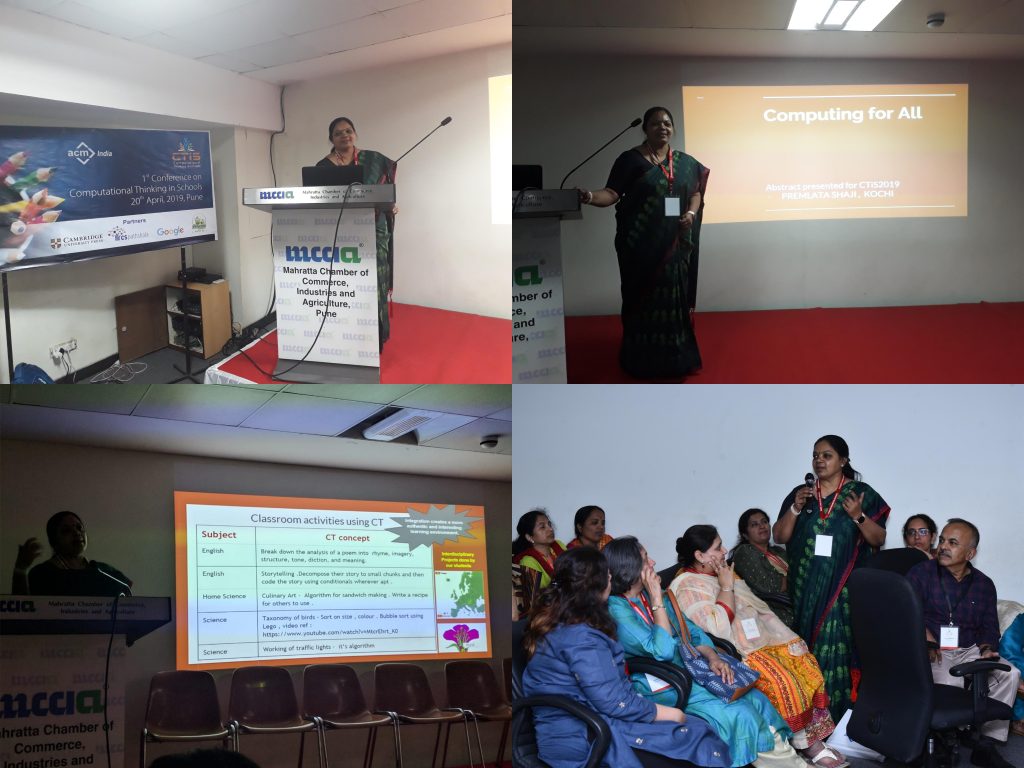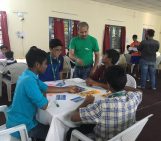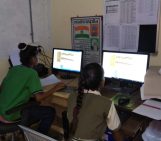
Joy of Computing
Computational Thinking has been identified as the foundation of 21st century skills. It is interesting to note that it has given a new dimension to children with learning disabilities too.
At the onset my request to all educators is let’s retitle “Learning Disability” as “Learning Differently “ . Differently abled children needs a Different style of Learning . This is where Computational Thinking showcases its strength .
Through engaging and entertaining activities like games and puzzles ,the taste of real world challenges are slowly pushed into their system . CT concepts of algorithmic thinking, decomposition, abstraction and pattern matching is done implicitly using play way method . I have found it a powerful approach to problem solving with or without computers.
Dyslexia ( learning disability that affects reading ) , Dysgraphia (disability that affects a person’s handwriting ability and fine motor skills) and Dyscalculia(disability that affects a person’s ability to understand numbers and learn math facts) are common disabilities seen among school children.
Our observation is that students who have learning disabilities are found to have poor working memories, which has a negative impact on their ability to remember the steps to solve a problem. Students who have visual-processing problems or poor visual-spatial skills may have difficulty recognizing correct numbers and signs, leading to errors in their work. There seems no single formula to solve all their problems , nevertheless CT helps to mitigate the problems moderately through iteration , pattern matching etc.
Some of these students perform well in some environments but have difficulty in others.Many of them like challenges . The recent BebrasNational Computational Thinking Challenge came as an eye opener for us . A student who is popularly known for being hyper active and a slow learner did well in the challenge and is obsessed on problem solving now .We have customised CSPathshala worksheets to meet the requirement of students who learn differently .Student “X” is very well behaved in the Computer Science class but restless during math and science class. These children seem fine at home but consistently become anxious or scared every time they have to sit for a math or science class . These are a few reported incidents of ecological assessment .
CT can be applied seamlessly to all subjects maths , science ,language , culinary art etc . Thus this innate , discrete way of learning about the world would certainly help an individual to identify and positively utilise his ability to problem solving and critical thinking . Hence I strongly feel it should be embedded into standard school curricula across all boards .
CTiS 2019 , the First National Computational Thinking Conference in India , held in April 2019 at Pune was an excellent platform for educators to share their experiences. As an invited speaker , I was able to share my experiences and challenges to reach “CT to students with special needs” . The feedback received was immense , with many enquiries still pouring in . Like me , all participants were able to unravel the mystery of “Computational Thinking “ , which provided a gateway to explore different ways to synthesize CT in real life situations. Huge thanks to CSPathshala team for spear heading the event .
Let us join hands to help those who would want to learn differently, using “Computational Thinking as our magic wand !!!
PremlataShaji
Cochin Refineries School ,Kerala


